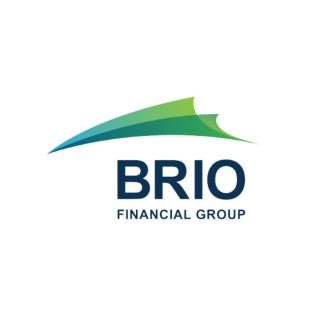
Your Financial Co-Pilot
by Brandon Miller on May 22, 2019
If you weren’t around, what would happen to your investments? In many families, one person handles investment decisions, and spouses or children have little comprehension of what happens each week, month, or year with a portfolio.
In an emergency, this lack of knowledge can become financially paralyzing. Just as small business owners risk problems by “keeping it all in their heads,” families risk problems when only one person understands investments.
A trusted relationship with a financial professional can be so vital. If the primary individual handling investment and portfolio management responsibilities in a family passes away, the family has a professional to consult – not a stranger they have to explain their priorities to at length, but someone who has built a bond with mom or dad and perhaps their adult children.
You want a professional who can play a fiduciary role. Look for a financial professional who upholds a fiduciary standard. Professionals who build their businesses on a fiduciary standard tend to work on a fee basis or entirely for fees. Other financial services industry professionals earn much of their compensation from commissions linked to trades or product sales.1
Commission-based financial professionals don’t necessarily have to abide by a fiduciary standard. Sometimes, only a suitability standard must be met. The difference may seem minor, but it really isn’t. The suitability standard, which hails back to the days of cold-calling stock brokers, dictates that you should recommend investments that are “suitable” to a client. Think about the leeway that can potentially provide to a commission-based professional. In contrast, a financial professional working by a fiduciary standard always has an ethical requirement to act in a client’s best interest and to recommend investments or products that clearly correspond to that best interest. The client comes first.1
You want a professional who looks out for you. The best financial professionals earn trust through their character, ability, and candor. In handling portfolios for myriad clients, they have learned to watch for certain concerns and to be aware of certain issues that may get in the way of wealth building or wealth retention.
Many investors have built impressive and varied portfolios, but lack long-term wealth management strategies. Money has been made, but little attention has been given to tax efficiency or risk exposure.
As you near retirement age, playing defense becomes more and more important. A trusted financial professional could help you determine a risk and tax management approach with the potential to preserve your portfolio assets and your estate.
Your family will want nothing less. With a skilled financial professional around to act as a “co-pilot” for your portfolio, your loved ones will have someone to contact should the unexpected happen. When you have a professional who can step up and play a fiduciary role for you, today and tomorrow, you have a financial professional whose service and guidance can potentially add value to your financial life.
If you’re the family member in charge of investments and crucial financial matters, don’t let that knowledge disappear at your passing. A will or a trust can transfer assets, but not the acumen by which they have been accumulated. A relationship with a trusted financial professional may help to convey it to others.
This material was prepared by MarketingPro, Inc., and does not necessarily represent the views of the presenting party, nor their affiliates. This information has been derived from sources believed to be accurate. Please note - investing involves risk, and past performance is no guarantee of future results. The publisher is not engaged in rendering legal, accounting or other professional services. If assistance is needed, the reader is advised to engage the services of a competent professional. This information should not be construed as investment, tax or legal advice and may not be relied on for the purpose of avoiding any Federal tax penalty. This is neither a solicitation nor recommendation to purchase or sell any investment or insurance product or service, and should not be relied upon as such. All indices are unmanaged and are not illustrative of any particular investment.
The opinions expressed in this article are for general informational purposes only and are not intended to provide specific advice or recommendations for any individual or on any specific security. It is only intended to provide education about the financial industry. To determine which investments may be appropriate for you, consult your financial advisor prior to investing. Any past performance discussed during this program is no guarantee of future results. Any indices referenced for comparison are unmanaged and cannot be invested into directly. As always please remember investing involves risk and possible loss of principal capital; please seek advice from a licensed professional.
Brio Financial Group is a registered investment adviser. Advisory services are only offered to clients or prospective clients where Brio Financial Group and its representatives are properly licensed or exempt from licensure. No advice may be rendered by Brio Financial Group unless a client service agreement is in place.
1 - kiplinger.com/article/retirement/T023-C032-S014-choosing-a-financial-adviser-fiduciary-dimension.html [3/22/19]
